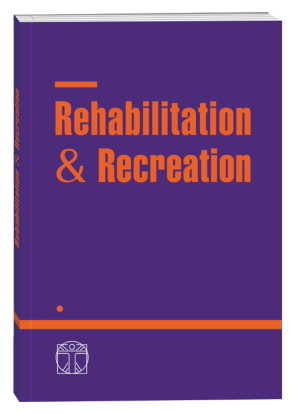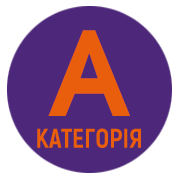ЗАЛЕЖНІСТЬ ПСИХОЛОГІЧНИХ ТА ФІЗИЧНИХ ЯКОСТЕЙ ОПЕРАТОРІВ ДРОНІВ В УМОВАХ, НАБЛИЖЕНИХ ДО БОЙОВИХ
DOI:
https://doi.org/10.32782/2522-1795.2024.18.4.6Słowa kluczowe:
психологічні якості, військовослужбовці, оператор, безпілотники, фізична підготовка, бойова діяльністьAbstrakt
Мета – визначити фізичні якості, які найбільш ефективно сприяють підтримці психологічних якостей військових – операторів безпілотників в умовах, наближених до бойових. Матеріал і методи. Було сформовано чотири групи курсантів, кожна з яких складалася з 25 осіб. До першої групи увійшли курсанти з високим рівнем розвитку статичної витривалості (утримання планки), до другої – швидкісної, до третьої – загальної витривалості, до четвертої – силової витривалості. Вік і тривалість військової служби курсантів в обох групах достовірно не відрізнялися (p>0,05). Дослідження були проведені та виконані відповідно до етичних стандартів Гельсінської декларації. Результати. Під впливом вестибулярного подразнення психологічні якості курсантів усіх груп знижуються. Показники КЗП курсантів першої групи погіршуються на 2,8 (t=2,081; р<0,05), другої групи – на 4,75 (t=2,060; р<0,05). У курсантів 3 та 4 груп визначені показники також знижуються на 1,2 та 0,7 відповідно, але достовірної різниці з показниками у спокої не визначено (р>0,05). Показники ПРУ курсантів 3 та 4 груп знизилися на 0,85 та 0,4 відповідно, що не дозволяє говорити про достовірну різницю порівняно з вихідними даними цього показника (р>0,05). Аналіз впливу НЕН на психологічні якості курсантів дозволив виявити таку динаміку змін показників КСУ: у курсантів 1 групи зниження на 2,1 стосовно показників у спокої (t=3,279; р<0,01); у курсантів 2 групи – на 2,9 (t=2,112; р<0,05); у курсантів 3 групи – на 0,4 (t=0,252; р>0,05) та у четвертій групі – на 0,7 (t=0,417; р>0,05). Висновки. Визначено, що під впливом вестибулярної стимуляції та НЕС курсанти з переважним розвитком загальної та силової витривалості демонструють достовірно вищі показники психологічної підготовленості порівняно з курсантами з переважним розвитком статичної витривалості та швидкості (р<0,05-0,001).
Bibliografia
1. Afonin, V., Romanchuk, S., et al. (2022). Physical training of cadets of higher military educational institutions based on the selective direction of professional education: monograph. 386.
2. Fishchuk, I., Oderov, A., Svyshch, Y., Pylypchak, I., Dukh, T., Lashta, V. (2022). Improvement of special qualities of military personnel by means of physical education. Bulletin of Kamianets-Podilskyi Ivan Ohienko National University. 26(2022):135–140. https://doi.org/10.32626/2309-8082.2022-26.135-140.
3. Iedynak, G., Sliusarchuk, V., Mazur, V., Matsuk, L., Kljus, O., Bozhyk, M., Klymovych, V., Lototskiy, I., Ovcharuk, I. (2020). The Effect of Training in Military Pentathlon on the Physiological Characteristics of Academy Cadets. SportMont Journal. 18(3):95–9. https://doi.org/10.26773/smj.201007.
4. Klymovych, V., Oderov, A., Korchagin, М. et al. (2020). The influence of professionally oriented physical training means on the operator’s professionally important physical ability level. SportMont Journal. 18(1):19–23. http://dx.doi. org/10.26773/smj.200204.
5. Klymovych, V., Oderov, A., Romanchuk, S., Lesko, O., Korchagin, М. (2019). Motivation of forming students’ healthcare culture on principles of interdisciplinary integration. SportMont Journal. 17(3): 79–83. http://dx.doi.org/10.26773/smj.191017.
6. Korchagin, M., Oderov, A., Klymovych, V., Olkhovyi, O. et al. (2019). The influence of the system of physical education of a higher educational school on the level of psychophysiological qualities of young people. SportMont Journal. 17(2): 93–97. https://doi.org/10.26773/smj.190616.
7. Korobeinikova, I., Raab, M., Laborde, S, Kokun, O., Korobeinikova, L., Korobeynikov, G., Romanchuk, S., Cynarski, W., Shtanagey, D., Yehorenkov, A. (2024). Post-traumatic stress disorder among elite athletes affected by war. Journal of Physical Education and Sport. 24(5):1118–1123. https://doi.org/ 10.7752/jpes.2024.05128.
8. Korolchuk, M. (2002). Adaptation and its importance in the system of psychophysiological support of activity. Bulletin of the Kyiv International University. 1(2): 146–158.
9. Leshchinsky, O., Pervachuk, O., Babych, M., Nebozhuk, O., Bogdanov, M., Bubon, V., Abramenko, O., Khachatryan, A. et al. (2023). Quality of military professional training of cadets as a component of successful performance of special tasks. Scientific Journal of the National Pedagogical Dragomanov University. 3 (161)23: 131–135. https://doi.org/10.31392/NPU-nc.series15.2023.03(161).30.
10. Lesko, O., Oderov, A., Nebozhuk, O., Pylypchak, I., Olkhovyi, O., Poltavets, A., Romanchuk, V. (2022). Analysis of the dynamics of physical development of cadets as a result of the application of crossfit equipment. Slobozhanskyi Scientific and Sports Bulletin. 26(4): 133–140. https://doi.org/10.15391/snsv.2022-4.006.
11. Matveiko, O., Olkhovyi, O., Oderov, A. et al. (2022). The influence of physical exercises on the functional state and performance of military veterans of combat operations. Volyn National University named after Lesya Ukrainka. 1(57): 31–36. https://doi.org/10.29038/2220-7481-2022-01-31-36.
12. Nebozhuk, O., Oderov, A. et al. (2023). Formation of military-applied skills of students of higher education institutions in the process of physical education. Volyn National University named after Lesya Ukrainka. 1(61): 54–63. https://doi.org/10.29038/2220-7481-2023-01-54-63.
13. Oderov, A., Romanchuk, S., Nebozhuk, O., Kuznetsov, M., Romanchuk, V., Boyarchuk, O. (2021). Innovative research of the content of physical training of the Armed Forces of foreign countries as an element of military professional training. Bulletin of Kamianets-Podilskyi Ivan Ohienko National University. Series: Physical education, sports and human health. 23:46–51.
14. Oderov, A., Babych, M., Dunets-Lesko, A., Shlyamar, I. et al. (2023). Fundamentals of formation of military applied skills of servicemen by means of orienteering. Scientific Journal of the National Pedagogical Dragomanov University. 8(168)23: 109–112. https://doi.org/10.31392/NPU-nc.series15.2023.8(168).21.
15. Oderov, А., Romanchuk, S. et al. (2022). Analysis of the level of physical fitness of cadets of the Military College of Sergeants at the stage of primary. Sport i Turystyka. Środkowoeuropejskie Czasopismo Naukowe. 5(1): 93–102. http://dx.doi.org/10.16926/sit.2022.01.05.
16. Olkhovyi, O., Korchagin, M. (2010). Influence of military-professional activities on the physical fitness, development, and physical and functional state of military operators. Pedagogy, Psychology, and Medical-Biological Problems of Physical Education and Sports. 12: 89–94.
17. Popovych, O., Romanchuk, S. (2010). Special physical training as a means of adaptation to stress factors of educational and combat activities of military personnel. Pedagogy, Psychology, and Medical-Biological Problems of Physical Education and Sports. 11: 88–91.
18. Rolyuk, A., Boyarchuk, A., Kyrpenko, V., Afonin, V., Lojko, O. (2016). Research on the organism response of reconnaissance officers to the specific load of military exercises. Journal of Physical Education and Sport. 16(1): 132–5.
19. Romanchuk, S. (2015). Peculiarities of officers’ fitness shape. Journal of Physical Education and Sport. 15 (3): 441–445.
20. Romanchuk, S., Afonin, V. et al. (2022). Physical training of cadets of higher military educational institutions based on the selective direction of professional education: monograph. 386.
21. Romanchuk, S., Oderov, A., Kuznetsov, M. et al. (2017). Innovative approaches for evaluating physical fitness of servicemen in the system of professional training. Journal of Physical Education and Sport. 17(1)4: 23–27. http://dx.doi.org/10.7752/jpes.2017.s1004.
22. Romanchuk, S., Oderov, A., Lesko, O., Barashevsky, S., Badan, Yu. (2022). Selection of cadets to the orienteering team in a military institution of higher education. Scientific Journal of the National Pedagogical Dragomanov University. 7(152)22: 96–100. https://doi.org/10.31392/NPU-nc.series15.2022.7(152).23.
23. Romanіv, I., Pervachuk, O., Oderov, A., Gunchenko, V., Ponomarev, V., Nebozhuk, O., Melnikov, A., Lashta, V., Andreychuk, V. (2024). Interrelation of military professional training and physical fitness of military personnel. Physical education, sports and health culture in modern society. Volyn National University named after Lesya Ukrainka. 1(65): 10–17. https://doi.org/10.29038/2220-7481-2024-01-10-17.
24. Tychyna, I., Pidleteichuk, R., Homаnyuk, S. et al. (2020). The impact of mass sports work in educational institution on the formation of cadets’ value attitude towards the physical education. SportMont Journal. 18(1): 81–86. https://doi.org/10.26773/smj.200214.
25. Tychyna, B., Babych, M., Romanchuk, S., Oderov, A., Yuriev, S., Arabadzhiev, T., Otysko, V., Kutsmus, S., Siyanko, O., Voitsekhivskyi, I. (2024). Effectiveness of the methodology of teaching orienteering to cadets majoring in artillery intelligence with regard to the competitive activity of orienteers. Bulletin of Kamianets-Podilskyi Ivan Ohienko National University. Physical education, sport and human health. Kamianets-Podilskyi: KPNU named afterI. Ohienko. 29(1): 5–11. https://doi.org/10.32626/2309-8082.2024-29(1).5-11.
Pobrania
Opublikowane
Jak cytować
Numer
Dział
Licencja

Utwór dostępny jest na licencji Creative Commons Uznanie autorstwa – Użycie niekomercyjne – Bez utworów zależnych 4.0 Międzynarodowe.












